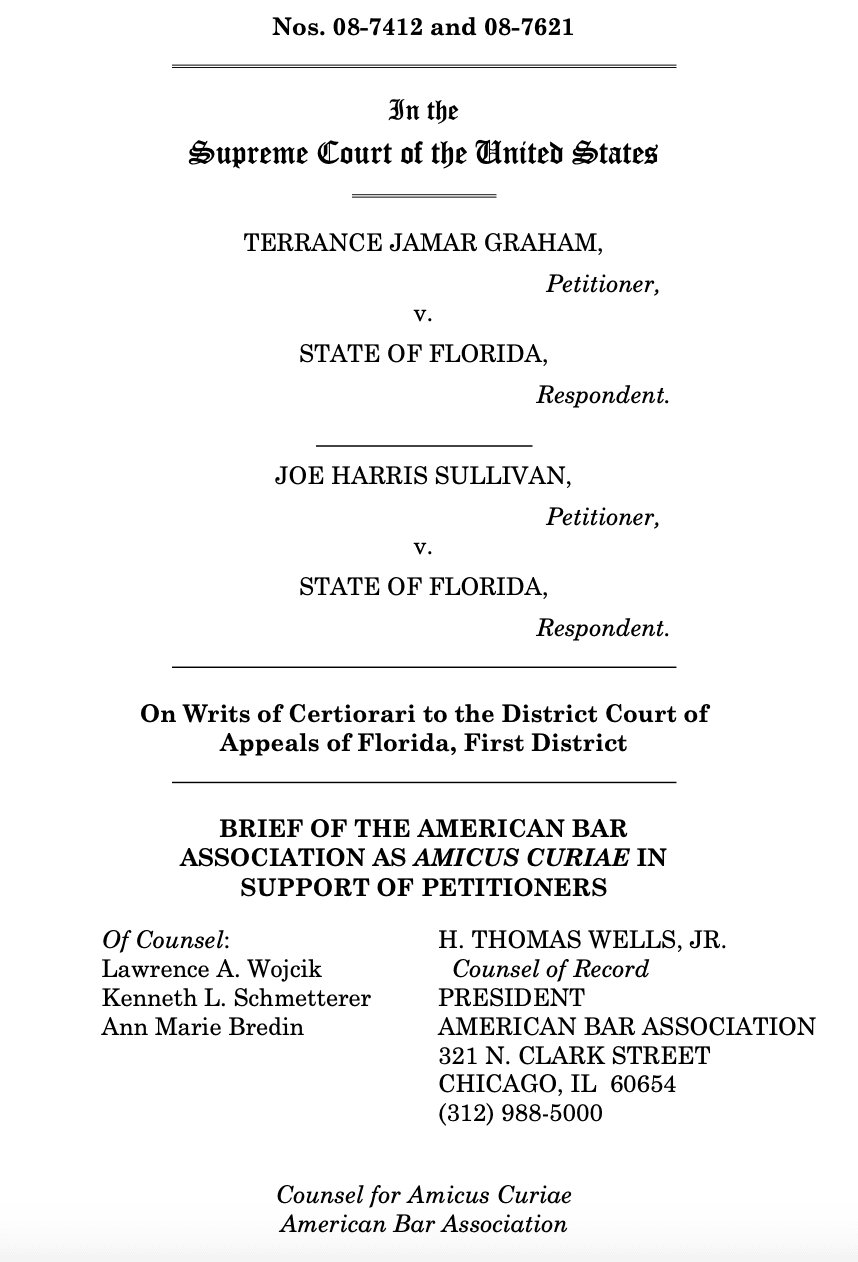
Summary of Argument
The ABA respectfully submits that sentencing a juvenile offender to life in prison without the possibility of parole (“JLWOP”) is not reconcilable with the lesser culpability of juvenile offenders. On that basis, settled doctrine establishes that such a sentence is not permissible under the Eighth and Fourteenth Amendments.
First, JLWOP should be considered a “grossly disproportionate” sentence because the “real time” of the juvenile offender’s prison term, barring executive commutation, is the rest of the juvenile’s life.
Second, “the evolving standards of decency,” Roper, 543 U.S. at 561, citing Trop v. Dulles, 356 U.S. 86, 100-101 (1958) (plurality opinion), have established that none of the standard justifications for criminal justice sentencing – retribution, deterrence, incapacitation and rehabilitation – are served by JLWOP.
Third, because the parole system provides sufficient safeguards to protect the public from those juvenile offenders who, as adults, are deemed to require continued imprisonment, JLWOP should not be permitted.
Finally, consideration of international authorities demonstrates an overwhelming opposition to JLWOP.